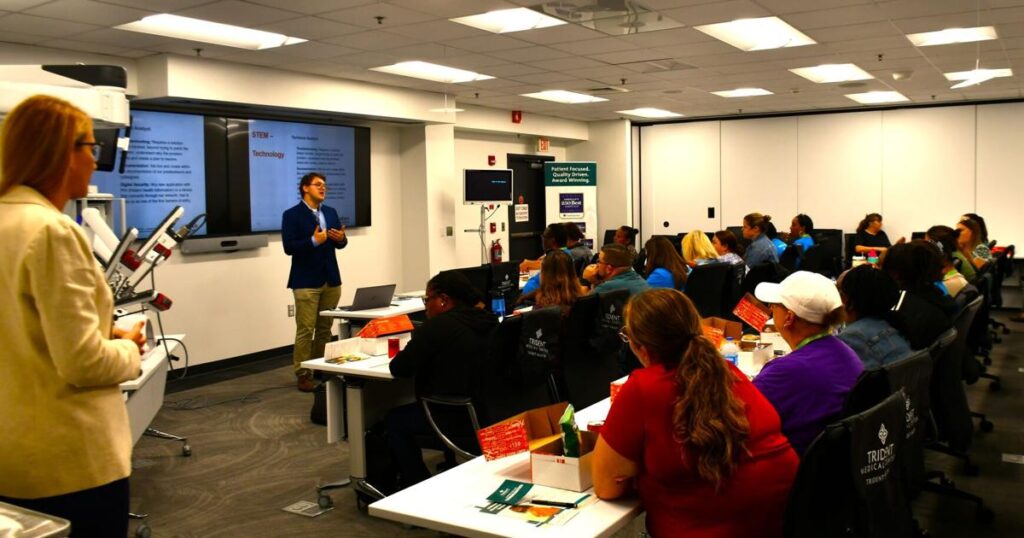On Thursday, June 20, approximately 40 educators from across three counties visited Trident Medical Center to gain insight into how teachers and instructional coaches can enrich students’ medical studies as part of the science, technology, engineering and mathematics (STEM) curriculum.
During the day, students were given information about how technology is used in medicine. The initiative aims to give educators a better understanding of what students should know if they plan to go into science. It also aims to build relationships with local school districts and get students interested in science.
“I think it’s important for us to really spark an interest in medicine and science early on,” said Jeff Wilson, president of Trident Health and CEO of Trident Medical Center. “One of the things that I think is very valuable to our students, to our high school program and to our institution is to get a taste of what it’s like to work in a healthcare environment, to observe patient care and see the technology in action.”
Efforts to foster science in school-age children are crucial: Technology is constantly changing, so fresh thinking is always needed. But unlike other sciences, Wilson said, science must have a human connection.
“Our industry is very technology-driven,” he says, “and while the technology we use to diagnose and treat patients is constantly improving, the human element remains at the core of healthcare.”
This is not the first time the educators have done something like this: they have visited various manufacturing facilities in the area, including Volvo, Mercedes and Scout Boats, and have had every opportunity to get in touch.
“It’s a collaboration between our business partners and the students themselves,” said Lorraine Ambrose, STEM instructional coach for Dorchester School District 2. “It allows them to understand and recognize what’s going on in the community and bring that back to the classroom, so that students at a younger age, even at the elementary school level, know what to expect as they move forward in their educational careers.”
With so many science fields to choose from in the area, Ambrose said her commitment to teaching is bittersweet.
“It’s encouraging and interesting to understand this science and the technology behind it and what’s available,” she said. “It’s a little disheartening to hear that students aren’t as proactive about the soft skills side of things in their careers as they should be, but it’s also part of our job as teachers to teach them what they need to be successful.”

